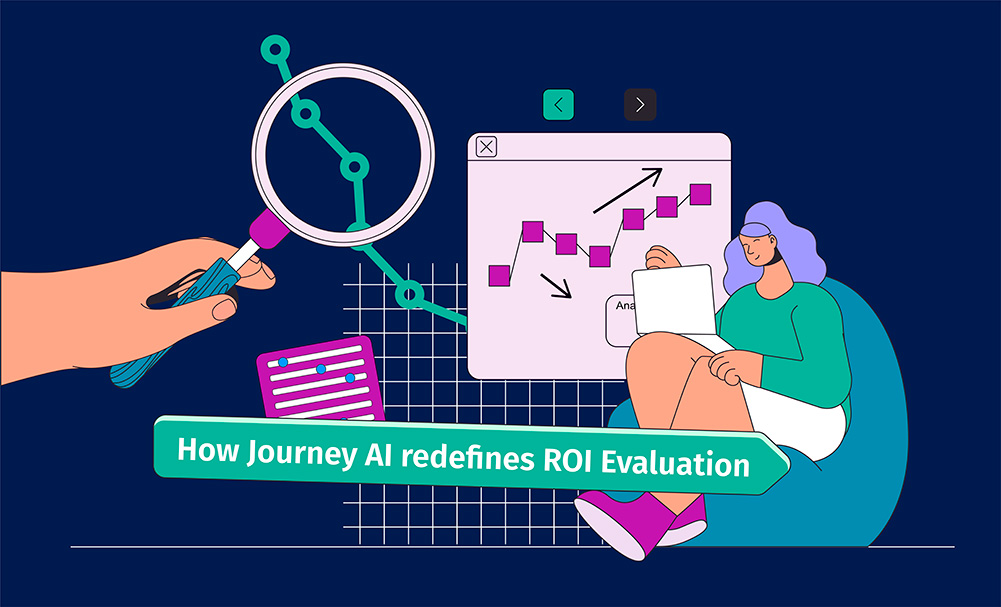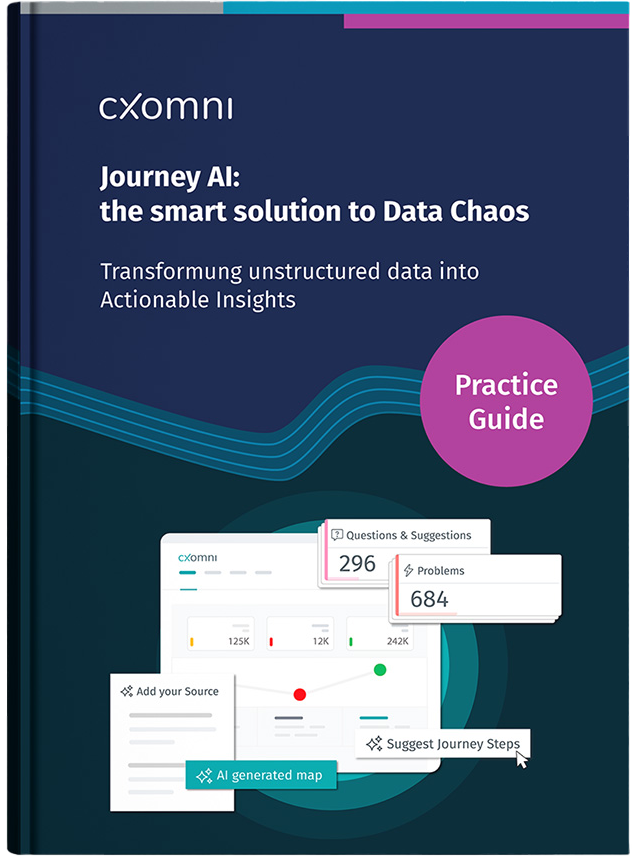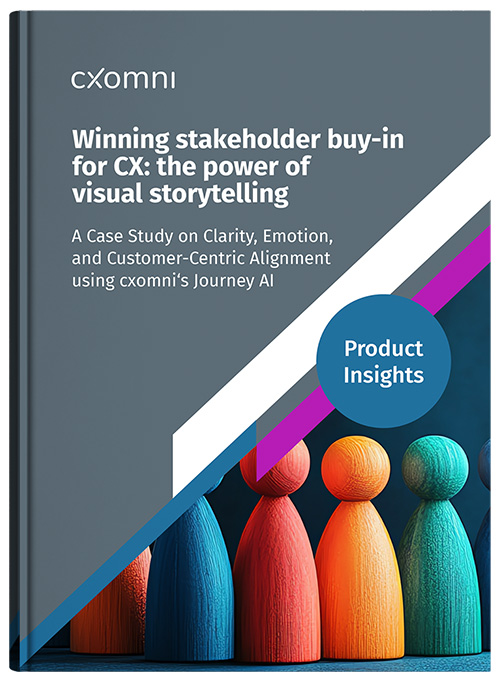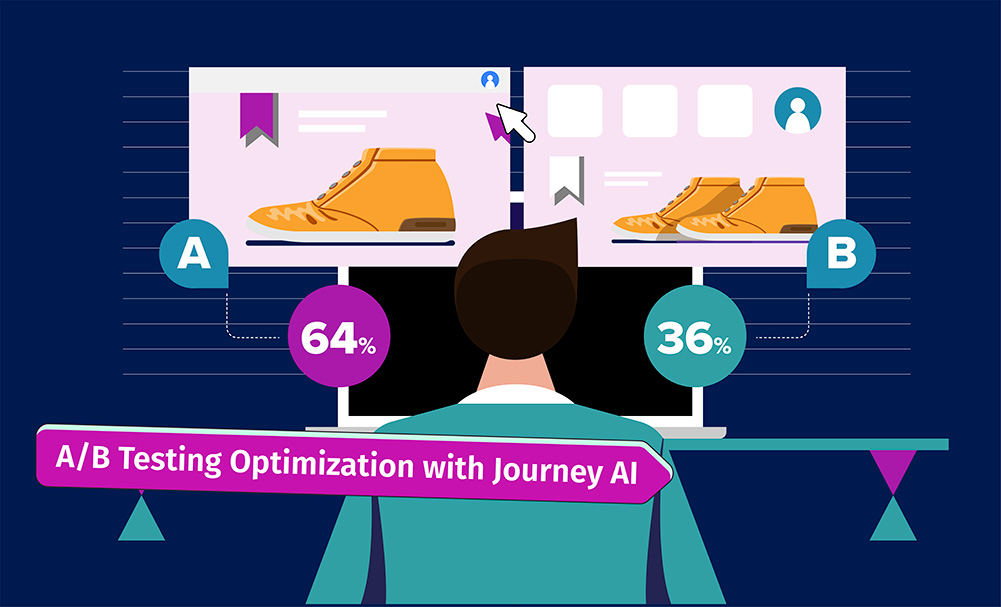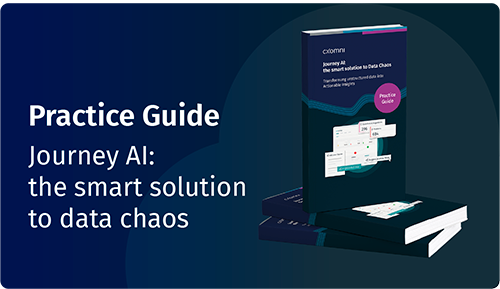In today’s data-saturated environment, evaluating business impact from CX or marketing campaigns has become one of the most critical and complex tasks for CX, marketing and brand managers. With every campaign, touchpoint, and customer interaction generating waves of data, the challenge lies in differentiating which efforts truly drive revenue, market share growth, or customer acquisition. Yet, with over 80% of this data being unstructured, the process can feel like navigating a labyrinth without a map.
Journey AI provides companies with the tools to transform unstructured data into a clear narrative of impact and understand the root causes of KPIs and benchmarks. By leveraging advanced capabilities like data integration, insights mining, and sentiment analysis, Journey AI empowers businesses to uncover the direct connections between branding initiatives and business outcomes. The result? Actionable insights that lead to smarter decisions and measurable success.
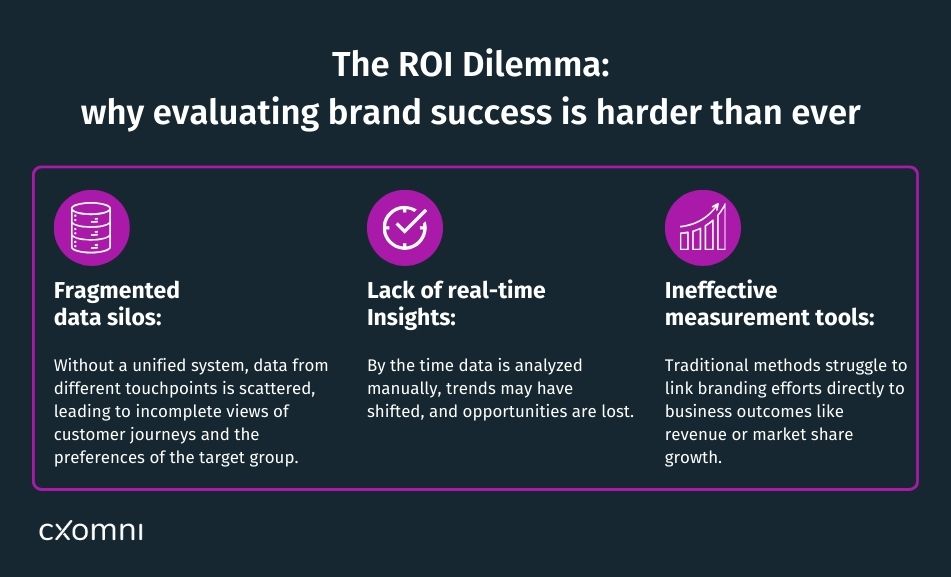
One of the core challenges are fragmented data silos. Without a unified system, data from various touchpoints remains isolated and disconnected. This leads to incomplete insights into customer journeys and hinders the ability to understand customer preferences or behaviors.
Another major issue is the lack of real-time insights. When data analysis is conducted manually, the process is normally slow. By the time actionable insights are extracted, market trends may have already shifted, resulting in missed opportunities to adapt and respond effectively.
Lastly, ineffective measurement tools are an additional barrier. Many tools don’t offer a direct connection between branding initiatives and business outcomes, such as revenue growth or increased market share. This makes it hard for businesses to assess the true return on investment (ROI) of their branding strategies.
Data Integration: a unified perspective on business impact
One of Journey AI’s core features is the ability to integrate unstructured and structured data into a cohesive framework. By pulling together data from surveys, social media posts, CRM systems, and customer interactions, Journey AI provides a comprehensive view of a brands’ performance.
By integrating data effectively, companies make more informed and impactful decisions. They can e.g. identify which strategies are delivering the best results by analyzing performance across various touchpoints. This highlights not only successful approaches but also provides a strong foundation for justifying budget allocation, ensuring that resources are directed towards initiatives with the highest return on investment. Additionally, with deeper insights into audience preferences and behaviors, companies can design campaigns that are more precisely tailored to resonate with their target groups, ultimately driving stronger engagement and better overall outcomes.
For example, a campaign aimed at boosting brand awareness can be traced through increased engagement on social media, higher website traffic, and subsequent sales conversions. Journey AI highlights the connections between these metrics, providing valuable insights for future campaigns.
Understanding the root causes of data and trends
Unlike traditional BI tools, which focus primarily on organizing and visualizing data, Journey AI goes a step further by explaining the underlying reasons behind key performance indicators (KPIs) of e.g. a certain marketing or sales campaign and their business impact. It doesn’t just aggregate data; it uncovers the “why” behind the numbers.
For instance, if customer retention rates drop, Journey AI can identify contributing factors but also propose reactive measures, such as improving delays in service or better matches of expectations. This ability to link metrics to their root causes enables businesses to take targeted actions that directly address issues and optimize strategies. By transforming raw data into actionable insights, Journey AI ensures a data-driven approach to achieving sustainable growth and improved ROI.
Insights Mining: understanding touchpoint effectiveness with AI
So, let’s take a closer look at how AI has the potential to support companies with optimizing their strategies. As we all know, branding success isn’t just about measuring benchmarks; it’s about knowing which touchpoints make or break the customer journey. Journey AI’s Insights Mining feature assesses the effectiveness of individual touchpoints in driving desired outcomes.
Every customer interaction has the potential to influence purchasing behavior. However, not all touchpoints contribute equally to business success. Insights Mining uncovers which interactions deliver value and which ones fall flat. For instance, if NPS scores drop after a specific stage in the journey, Insights Mining helps identify whether unclear messaging, delays, or service gaps are to blame. Similarly, it can reveal the most impactful elements of a campaign—like visuals or offers—that drive customer actions.
Sentiment Analysis: turning emotions into actions
Sentiment Analysis is another AI feature that brings emotional nuances to light and helps turining customer emotions into metrics and insights by examining unstructured data such as customer reviews, survey feedback, and social media posts. By analyzing shifts in customer sentiment, the AI feature connects branding initiatives to changes in customer perceptions.
For example, a rebranding effort that sparks positive sentiment may lead to higher loyalty and increased sales. On the other hand, negative sentiment could indicate areas where branding failed to align with customer expectations.
Sentiment Analysis also categorizes feedback into topics—like complaints, praise, and suggestions—offering valuable insights on why a special offer is working for customers or not. If a new product launch for example leads to mixed reviews, companies can identify common pain points and address them proactively. This ensures branding efforts evolve in real time to meet customer needs.
Conclusion: why Journey AI becomes a driver for business success
In an era of data overload, evaluating business impact is more complex than ever, with fragmented data silos, unstructured feedback, and inefficient measurement tools posing significant barriers. Journey AI redefines this strategic approach by not only consolidating data but also explaining its underlying causes, enabling businesses to uncover the “why” behind their metrics. This approach transforms data into actionable insights, helping organizations identify key drivers of success, optimize strategies, and allocate budgets effectively.
